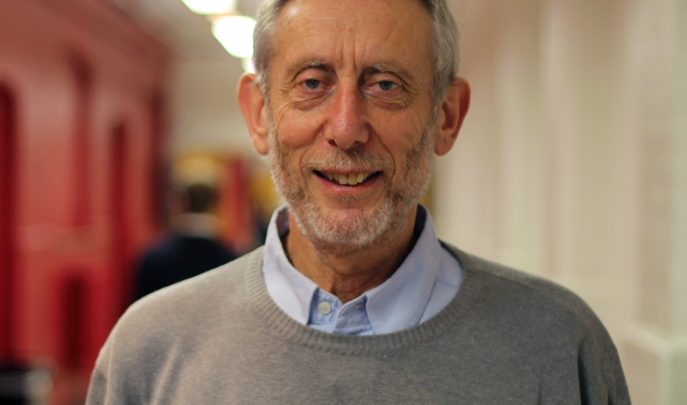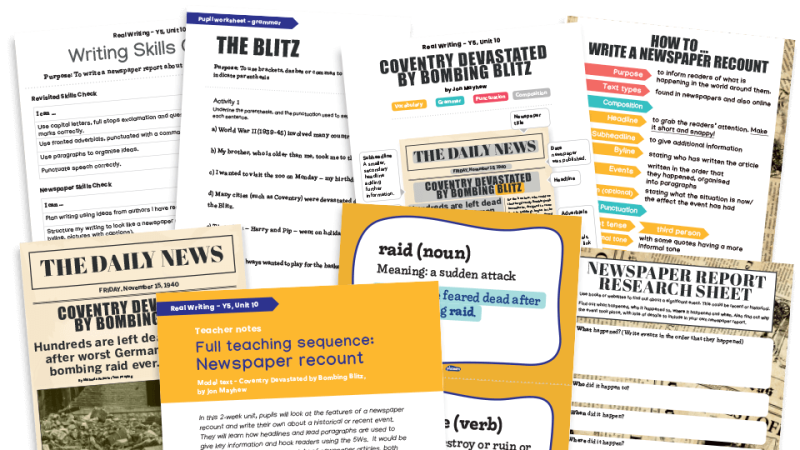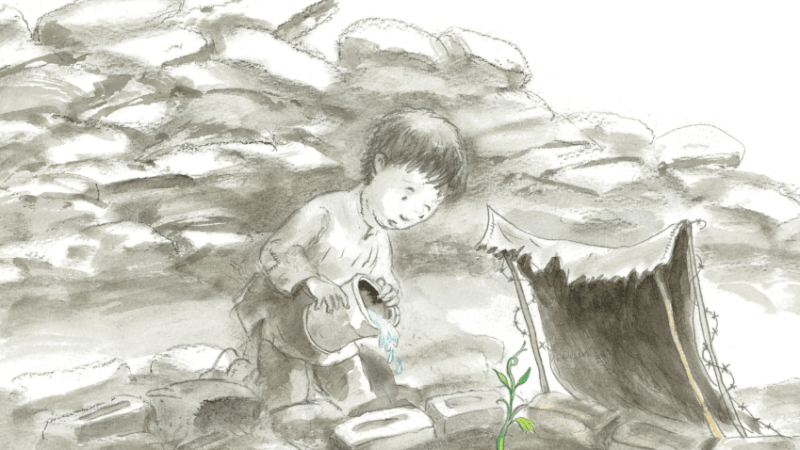Michael Rosen on tests, tussles and teaching – “The system they’ve set up has failure built into it”

The poet, writer and broadcaster discusses the secret of writing for children, why this year's SATs have been engineered for failure – and why a meeting with Nick Gibb once caused him to laugh out loud…

Michael Rosen turned 70 in May this year, yet the highly regarded poet, writer and broadcaster seems to maintain a formidable workrate. The children’s stories, poetry and non-fiction books keep on coming, and he continues to present the BBC Radio 4 discussion programme Word of Mouth – not forgetting, of course, the regular visits and talks he gives to schools.
Is there anything he’s wanted to do that he hasn’t yet done? “I don’t think so,” he says. “I like doing what I do, and have never really considered my own career ‘trajectory’. We live in very goal-oriented times – though even in the 50s it was similar, but somehow or other I escaped.”
Prior to escaping, he graduated in the late 60s from Wadham College, Oxford, having switched from studying medicine to English language and literature, before finding work at the BBC in radio documentaries and children’s television.
Following the publication of his first book for children (the Quentin Blake-illustrated Mind Your Own Business), he then embarked on a writing career that’s since seen his name adorn over 200 covers – from acclaimed picture books such as Hairy Tales and Nursery Crimes and his collaboration with Helen Oxenbury, We’re Going on a Bear Hunt, to dozens of poetry anthologies and story collections, as well as works of non-fiction.
Dignifying children’s lives
A frequent observation of Rosen’s work is that he has an unerring ability to tap into the minds of his young readers – writing in a way that speaks deeply to how children see and perceive the world, without talking down to them. It’s a skill that any children’s author needs to have, of course – but Rosen seems to wield it better than most. Does he recognise that in his writing, and if so, what would he put it down to?
“Part of it is that my parents dignified childhood – they put stuff in front of us [he and his older brother] that they thought we would benefit from at that moment. They engaged with their children in the here and now, and would reflect our own lives back at us – almost as if we were doing sketches about our own lives, which made it much easier to remember things later.
“My wife and I have similarly made enormous efforts to dignify our own children’s lives. That means listening to them, talking ‘with’ them rather than ‘at’ them, and trying to figure out what they’re about. From going into schools, I’ve also become acutely aware of the power relationships that go on between ‘education’ and the culture, knowledge and language of children themselves. When I write poems and stories, what interests me is those little clashes and ironies.”
There’s plenty of the latter to found in Uncle Gobb and the Dread Shed, recently issued in paperback and set to be followed by a sequel later this this year.
Told in prose packed with constant digressions and off-the-wall observations from a scatterbrained narrator, it follows 10-year-old protagonist Malcolm’s bewildering encounters with the peculiar mannerisms and unyielding worldview of his live-in Uncle Gobb – an officious man with a ‘shiny face’, and a fondness for both homework and fact-based education.
Were there any…particular inspirations for the Gobb character?
There’s a chuckle. “Well, you know, anybody who writes will pick up stuff that’s in the air. With my own children going through education and me being so involved in it, the Uncle Gobb books are a wry, jokey reflection on what’s going on in education, through the eyes of a child.”
‘Soviet apparatichiks’
As followers of Rosen’s blog and Twitter feed will know, he isn’t one to shy away from commenting very publicly and critically on the government’s education reforms. Given his public profile and influence, does he enjoy any direct lines of communication to government Ministers?
“When I was Children’s Laureate, I met with Ed Balls, then Secretary of State for Education, and Jim Knight, Minister of Schools,” he recalls. “I told them the Labour government was missing a trick by not putting ‘reading for pleasure’ as a core plank of policy.
‘I’ve put in an enormous amount of effort to try and encourage that, because even when we’re reading for fun – be it comics or whatever – that encoding into language of knowledge (in the broadest sense), and the job the child then does of decoding, understanding and interpreting matches very closely with what goes on in schools.
“After a recommendation that every school develop a ‘reading for enjoyment policy’ appeared in a 2012 Ofsted report, I was called in to see Nick Gibb. I asked him why he hadn’t implemented that particular recommendation. He said it was because ‘We’re not doing directives any more’ – and I burst out laughing. Every single thing that’s happened since then indicates that that’s precisely what they do.”
Ministerial meetings might have been thin on the ground since then, but he continues to have contact with government officials from time to time – though these seem to have done little for his faith in how power and influence over education is exercised.
He recalls appearing before an Education Committee meeting on Holocaust education last December in which, “I pointed out that it’s wrong and unfair to simply describe the Holocaust as a ‘German event’ – this was a European event, in which the events leading up to the war contributed to what happened.”
Following a hostile exchange with one of the MPs present, Rosen describes how the meeting descended into “A really unpleasant situation. As it happens, people on my father’s side of the family died in Auschwitz – and here I had somebody lecturing me on these matters. I just thought it’s extraordinary, the way in which these people behave. It doesn’t apply across all MPs, but as people move into high office and positions of responsibility, they tend to treat us as if we’re somehow lesser beings.
Warming to his theme, he describes how, “We now have apparatchiks, in the Soviet sense, running education. Look at the personnel of the DfE – they have virtually no education experience beyond university. The degrees they took were, by and large, in one form or another of administration, such as law, accountancy and all the rest. Their day-to-day experience of school, as children and teenagers was in private education.’
Failure by design
One area that’s particularly drawn Rosen’s ire of late is the rollout of this year’s primary SATs – not least because he’s witnessed their impact first-hand through the experiences of his 11-year-old son. “We were doing comprehension tests, and there was one about that wonderful WH Auden poem, ‘Stop all the clocks,’’ he remembers.
“The question was ‘What is the effect of those commands?’ My son took it literally – ‘Well, if you stopped all the clocks, people wouldn’t know what the time was’ – when it was actually asking about the effect of the device of making those commands in the poem.’
In Rosen’s view, the confusion in this instance and others – such as the widely reported maths paper question on train passengers – has arisen from a series of conscious decisions.
“The day after he took the second maths paper, I was told by a teacher at my son’s school that the test had used wording that the school had hardly taught, because they’d taught it in a different way. Failure was therefore guaranteed for a group of kids, most of whom you’d expect to to pass, based on the range of their ability. So they’ve done it – they’ve built failure by changing the wording.”
Yes, Minister…
Okay, so let’s imagine that Michael Rosen has been appointed Secretary of State for education, and given control of a magic civil service with the power to implement his every policy decision instantaneously. What three things would he do first?
“First, I’d create a representative body involving ‘stakeholders’ in education – teachers, parents and education researchers. It would be a centralised body, but there could also be a regional one, with dialogue between the two.”
“Second, I’d support and enrich local authority control of education. Every locality would be able to elect its own education representatives, who would be supported by educationally experienced people such as teachers and governors.”
Finally, I’d build ‘re-professionalisation’ into teaching contracts – a mechanism that would reward teachers for researching and sharing findings about their own practice. Instead of this ‘bonuses’ crap, salary increments would come from reflecting on what you were doing, and then sharing those reflections with others. The arc of a teacher’s career – from 22 to 65, say – would therefore involve becoming more and more experienced at researching your own practice.”
Uncle Gobb and the Dread Shed is available now in paperback from Bloomsbury; Michael Rosen’s forthcoming book, What Is Poetry? – The Essential Guide to Reading and Writing Poems, will be published by Walker Books in October 2016
For more information, visit michaelrosen.co.uk or follow @MichaelRosenYes.
Main image courtesy of Goldsmiths, University of London











